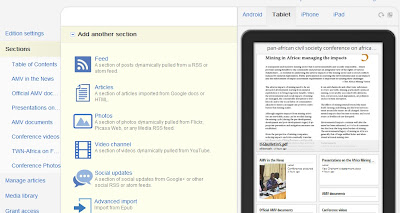EJN is organising a seminar on Jobs & Livelihoods on Thursday 9am at Coconut Grove Hotel, Accra. Please see below & attached.
ECONOMIC JUSTICE NETWORK (EJN) WORKSHOP ON JOBS & LIVELIHOODS
Concept Note
Introduction: The EJN is organizing a workshop on current problems, challenges and appropriate policy responses to the crisis of Jobs and Livelihoods in Ghana today. The workshop will bring together trade unions, women and youth organizations, farmers, industrialists, policy makers, academics and policy research and advocacy organizations and networks. It will be held in Accra on 21st June 2012.
Background: In 2011, Ghana attained record levels of GDP growth, marking a pronounced accentuation of the long-term trend of positive economic growth experienced over the last several decades. On the face of it, this reflects the success of the export-led strategy that has dominated policy and economic restructuring over this period. But this masks severe problems and developmental costs that this has entailed.
Primary among these is the crisis of joblessness that has characterized the pattern and nature of Ghana’s economic growth. Only an estimated 11% of the labour force remains in the formal sector; and only one-seventh of these are young workers under the age of thirty. In a country in which more than 70% of the population are young people this shows the depth and severity of the crisis of income-generating livelihoods and productive employment. In the context of the afore-mentioned export-led growth it also reveals the underside of an economy incapable of generating sustained improvements in the standard of living for a growing majority.
The dimensions of this that are given most recognition in official circles (at least at the rhetorical level) are the socio-political problems of the apparent inequality reflected in the regressive distribution of the benefits of the jobless growth that prevails. In recent years, mainstream policy establishment have emphasized this danger by reference to the upheavals in North Africa and across the Arab region. The most high profile policy response has been the increasing promotion of ‘inclusive growth’ which can be summarized as more systematic public policy interventions that privilege employment creation schemes within the mix of poverty reduction tools.
But this poverty-reduction or consumption-driven orientation of ‘inclusive growth’ has already shown crucial limitations. It retains the add-on, post-facto character of the social intervention programmes that have become institutionalized in the structural adjustment years, starting with PAMSCAD in the late 1980s. As such it does not bring into view, let alone seek to address, the actual source of the problem which is constantly reproduced and whose effects such interventions are intended to mitigate.
In particular, it overlooks the implications of the domestic deflation that has been pursued as the prerequisite of maintaining international cost competitiveness and external market share for both the foreign capital and primary commodity exports that Ghana has become even more narrowly dependent upon. Nor does it pay serious attention to the ever deepening economic distortions accompanying and resulting from the suppression of wage costs, employment growth, domestic consumption and the production that would have been oriented on growing domestic demand. Another cost of the resultant de-industrialization and agrarian paralysis is an import dependency that accentuates both the shock of every economic downturn as well as the distortions of every export-led growth cycle.
Crucially, the global economic crisis has greatly undermined the credibility and sustainability of primary commodity export-led growth strategy, which is revealed not only as a threat to poor people or for social and political stability, but, just as much, if not more, for the sustainability of growth and the prospects of development transformation.
There is now an urgent imperative to reorient growth on the more sustainable base of rebuilding domestic production capacity and domestic markets on the basis of the transformation of productivity and its structural integration.
An employment- and incomes-led growth path is a vital part of this – both as a kick-start and as part of long term sustainability. This must also situate itself on economic justice critiques and agenda’s of key constituencies such as the Trade Union’s current ‘Decent Work’ project, among others.
The EJN seminar will explore how developing the advocacy work of key constituencies in responding to current context of the jobs and livelihood crises can also set the agenda for alternative growth and developmental transformation policy in Ghana today.
Forum Objectives:
i) Develop shared understandings of causes and trends of joblessness; pressures on job-creation, viability of rural, smallholder and informal productive activity; and livelihood incomes.
ii) Share experiences by key socio-economic constituencies of jobs and livelihood threats and challenges and their struggles for defending and improving conditions
iii) Explore and share approaches and initiatives for policy and advocacy alternatives in response to the jobs and livelihood question
iv) Develop shared understanding and a collaborative agenda of collective organizational, networking and advocacy requirements for EJN as vehicle for contributing to synergizing and strengthening jobs and livelihoods agendas of popular constituencies in the context of alternative paradigms for economic growth and development.
Seminar Programme Structure:
The one-day workshop will comprise of 3 sessions:
Session One: Analytical Overview of Policy Approaches and Initiatives for Jobs and Livelihoods in Ghana
a) Government approaches and policy programmes to Employment Creation and Livelihood enhancement in Ghana: Past & Present
b) Employment, Growth and Development in Ghana: An analytical overview
c) Export-led Growth & the Politics of Jobs and Incomes Policy in the era of Global Crisis
(or: The Politics of Jobs and Livelihood under the Export-led Growth and Trade Liberalisation regime)
d) Alternative Initiatives for Jobs: The Decent Work Agenda for Ghana
Session Two: Strengthening Constituencies for Effective Advocacy
a) Experiences and Responses of Trade Unions, Farmers, Informal Sector, Women and Youth to Jobs and Livelihood challenges
b) Lessons of Popular Needs and Struggles for Jobs and Livelihoods
Session Three: Elements of EJN’s possible contribution to a Developmental Jobs & Incomes Agenda
a) Synergies for a common alternative paradigm
b) Mobilising constituencies towards an EJN agenda for advocacy
























